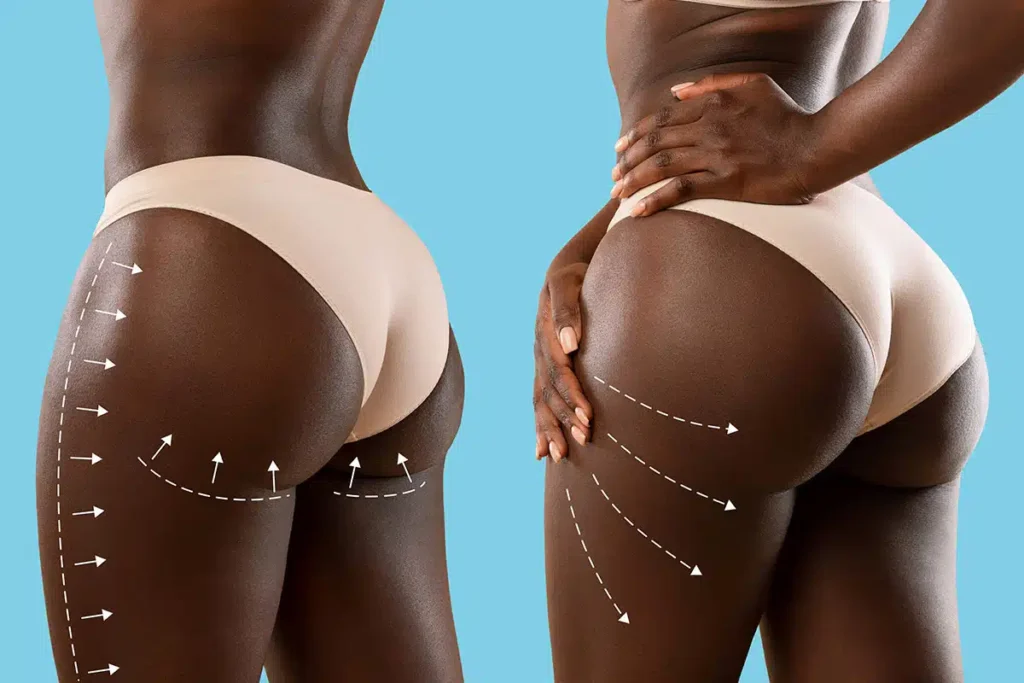The Advertising Standards Authority (ASA) in the UK has banned advertisements from six companies marketing liquid Brazilian butt lifts (BBLs), citing concerns that they downplayed the inherent risks of the procedure and exploited women’s vulnerabilities regarding their body image.
The ASA determined that all the advertisements, which appeared on Facebook or Instagram, utilized time-sensitive offers in a manner that “irresponsibly pressurised” potential customers into making bookings. One specific advertisement, for instance, sought to attract clients with an “exclusive opportunity” to achieve a “perfect peachy look.”
Liquid BBLs involve the injection of dermal fillers into the buttocks to create a lifted, larger, or more rounded appearance.
The ASA maintains that due to the potential complications associated with cosmetic surgery, such procedures should be presented as decisions requiring careful consideration and ample time for deliberation, rather than as urgent purchases driven by limited-time deals.
The advertising regulator emphasized that clinics have a responsibility to be socially conscious and should refrain from trivializing medical procedures or capitalizing on consumers’ insecurities about their bodies.
One banned advertisement stated: “Get the curves and contours you’ve always wanted with our safe and effective body filler treatments. Feel confident every step of the way! Safe, proven, and beautifully natural results.”
Another advertisement asserted a 0% infection rate at its “sterile clinic” and claimed minimal pain for patients.
The ASA countered that liquid BBLs inherently carry a degree of risk for patients, including the possibility of infections. Furthermore, the authority stated: “Marketers must not suggest that happiness or wellbeing depends on conforming to a particular body shape or physical appearance.”
The advertising watchdog also revealed its use of artificial intelligence to proactively identify online advertisements that may be in violation of advertising regulations.
Three of the implicated clinics – Beautyjenics, Bomb Doll Aesthetics, and Ccskinlondondubai – did not provide a response to the ASA’s inquiries.
Rejuvenate Clinics stated that it has reviewed the ASA’s guidance and will remove all references to time-limited offers in its advertising. The clinic also committed to explicitly stating in its advertisements that the procedure is performed by a medical professional utilizing ultrasound technology to minimize risks and enhance patient safety.
EME Aesthetics argued that all its clients undergo a comprehensive consultation and are under no obligation to book any procedures. Consequently, the clinic believes its advertisement did not pressure consumers or trivialize the risks associated with cosmetic procedures.
Dr Ducu affirmed its commitment to adhering to the ASA’s rules and guidance. The clinic explained that its time-limited Black Friday offer was intended to provide consumers with an opportunity to access its services at a discounted rate and that it consistently encourages consumers to make informed decisions without any undue pressure.

